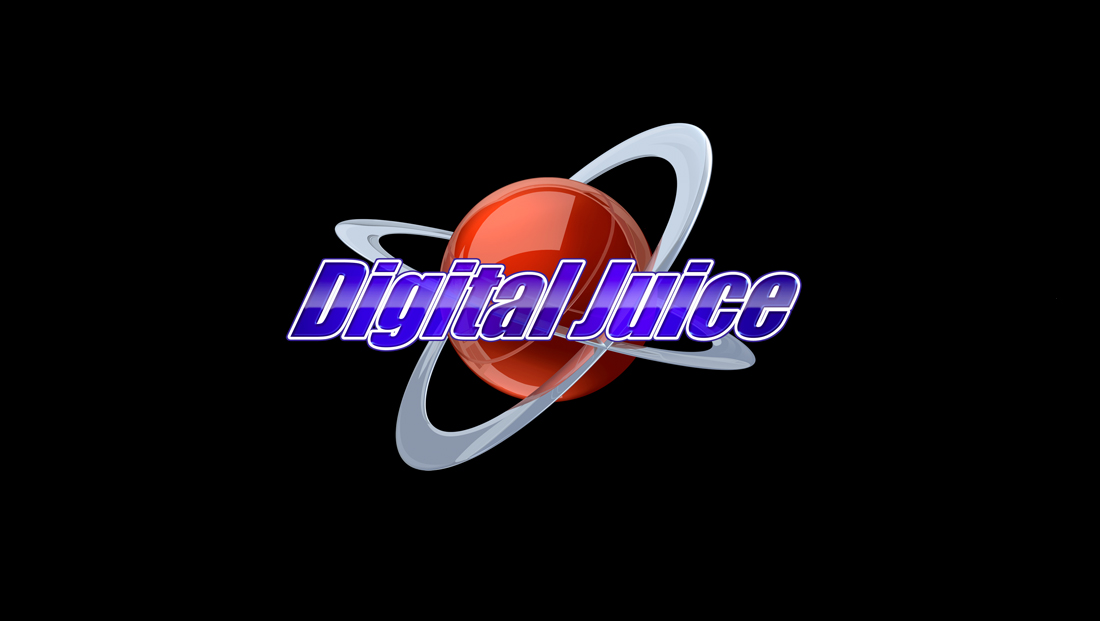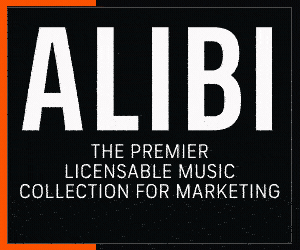Digital Juice, a royalty-free content provider, shuts down

Subscribe to NewscastStudio for the latest news, project case studies and product announcements in broadcast technology, creative design and engineering delivered to your inbox.
A longtime leader in royalty-free content for the video production and broadcast industry has closed its doors abruptly — and somewhat mysteriously.
According to a message posted on the company’s website, Digital Juice Inc., closed its doors in January 2024.
David Hebel death
The move follows the death of founder David Hebel on Nov. 24, 2023, according to the company’s website.
This appears to have triggered the closure of the company as well as related brands under the BusyBoxx name.
Emails to Digital Juice’s public email addresses received what appeared to be an automatic reply echoing the shut-down statement on the website and did not receive a separate response after several days.
Messages to various social media accounts went unanswered.
There were no immediate details about Hebel’s death. A search of nationwide obituary databases did not return any results that could be linked to the Digital Juice founder. There are multiple other individuals with the same name, including one who appears to work for Adobe, according to a LinkedIn profile, but does not appear to be the same individual.
What happens to Digital Juice customers?
The closure has left customers without access to many existing assets and more questions than answers.
Digital Juice previously distributed products via CD-ROM and DVD-ROM before switching to a download model.
It marketed the service as a “Netflix”-like offering where users paid a flat monthly fee to use an unlimited number of assets capped by a monthly bandwidth allotment.
Customers who had these products on disc format could continue to access them.
Busy Boxx has closed down too
Digital Juice also appeared to have ties to a company known as Busy Boxx LLC as well as multiple other LLCs with names including the word “Boxx,” each of which were marketed as separate brands offering a distinct lineup of digital products. Variations include TextureBoxx, AnimationBoxx, StageBoxx, WipeBoxx, CanvasBoxx and TitleBoxx.
Boxx brands sold products for a “lifetime” upfront, flat rate and allowed users to download items from a shared backend hosted under the Busy Boxx name. Customers typically paid a per-volume cost or bundled offerings offered at large discounts. Each volume within a product line would typically revolve around a theme or look — such as holidays, high-tech or music.
Some users have taken to social media, Reddit and comment sections to express their frustration that the brands closed without any apparent notice.
Despite the being marketed as lifetime memberships, it’s unlikely that the company has much legal obligation to customers because of terms of service (since removed) that became effective at the time of purchase did not, among other terms, guarantee any warranties or ongoing access to the digital files.
These types of terms and conditions are common among companies similar to Digital Juice and Busy Boxx and many experts advise that “lifetime” should really be interpreted as the lifetime of the company offering the product, as opposed to the lifetime of the user.
Still, this has left users who could have spent hundreds or thousands of dollars on digital assets that they no longer have access to.
It also sheds light on a big issue with digital products sold with lifetime use — what happens if the company shuts down and access to assets is cut off? An easy solution is download copies of all the files you have rights to (much company’s licenses allow for making backup copies, but verify this first). Storing them on cloud storage or an external hard drive are two options.
A potential wrench in that idea, however, is that many multimedia assets are, by definition, very large files — sometimes upwards over 1GB or more each, so it could become challenging to store copies of everything.
In some cases, even downloading assets could still cause issues because of uncertainties about what happens to licenses originally issued by a company that no longer exists. In most cases, the license would likely continue, just without any support or payment, assuming it was a “perpetual” license.
What actions can Digital Juice and BusyBoxx customers take?
It’s not entirely clear what recourse, if any, these users could take. None of the brands have made a public statement about refunds, and any attempts to access a part of the various sites other than the homepage, such as bookmarked download portals, generate an Amazon Web Services error message.
It does appear that Digital Juice has ceased monthly recurring billing on subscriptions, though each customer should verify this.
Customers could consider contacting consumer protection agencies or state attorneys general in New Mexico and Florida, though it’s important to keep in mind that even if the company does end up responding to consumer issues, it may not be able to pay out any of its alleged debts or issue refunds, even if legal action is taken against it. Quite simply, if there is no money available, it’s unlikely that consumers could recover any refunds or other funds.
Because Digital Juice and BusyBoxx were private companies, little is known about their subscription numbers, sales figures or financial status.
The field of digital royalty free content has become increasingly cluttered over the years and at least some of the new players in the space have developed content that is more in line with today’s trends and needs, according to users posts on various sites.
Dating back to 2020, there is at least one post on company reviews site Glassdoor that Digital Juice was “circling the bankruptcy drain.” Other posts claim the company had eliminated much of its U.S. staff and outsources operations to India.
Previous public statements by Digital Juice and Hebel did indicate a tie to India and there is also a Glassdoor profile for what appears to be the India office of the company.
No public records about a bankruptcy, if any, could be located, though it’s possible such proceedings have not been initiated.
What is the relationship between Digital Juice and BusyBoxx?
It’s not entirely clear how Digital Juice and the Busy Boxx brands are related from a legal standpoint.
Digital Juice is incorporated in Florida, with the various “Boxx” companies set up as LLCs in New Mexico. No public filings linking the two companies together definitively could be located.
However, Digital Juice customers reported receiving emails labeled as originating from the digitaljuice.com domain starting around 2020.
These emails were branded with the Boxx look and eventually started to originate from busyboxx.com. At times, these marketing emails referred to either company as “friends” of the other.
This would indicate, at the least, that the companies have at least a marketing partnership.
The various domain names used by Digital Juice and the Boxx brands do share AWS nameservers, though this is not a definitive indication that they are linked. Both sites appear to have made inactive around the same timem however.
Given that Digital Juice had switched to a subscription model and the Boxx brands sold product licenses outright more in line with the old licensing approach Digital Juice used, launching BusyBoxx and the related brands could have be seen as a way for Digital Juice to approach the market from two different sales strategies and value propositions.
Creating the Boxx brands could have been a way to not only market its products under a different name but also avoid issues with Digital Juice subscribers claiming they should have access to the Boxx content without paying extra.
Digital Juice was founded in 1992 Dimension Technologies Media Group. It first offered products aimed at Video Toaster users. It expanded to Amiga-based offerings.
About Digital Juice
In 1997, the company switched to its current name and released a product designed for Microsoft PowerPoint.
Over the years, the company offered a variety of digital creative products sold as royalty-free licensed assets. These included project templates for video software such as Adobe AfterEffects and Apple Motion.
Digital Juice also offered flat, non-editable files, including background animations called JumpBacks as well as thousands of individual elements. In some cases, elements were part of coordinated graphics sets with matching animated lower thirds, wipes, backgrounds and more, often aimed at the corporate video or wedding video production market.
JumpBacks achieved high-profile use on shows such as “American Idol,” primarily appearing on the on-set video screens during performances. The files often were seamlessly loopable and designed to be subtle enough for background use, making them ideal choices for this type of use.
The company later expanded to focus on products that could be used by a broader base of creatives, including JuiceDrops, a large collection of layered Photoshop files where various layers could be adjusted, turned on or off, removed or extracted for used in both project and video projects.
Digital Juice and BusyBoxx closing announcements
Full text of the announcement posted on Digital Juice’s website:
On November 24th, 2023, the founder and creative spirit of Digital Juice, David Hebel, passed away.
It is, therefore, with a deep sadness and heavy heart that, after 25 years of leading the way in royalty-free content creation, Digital Juice has permanently closed its doors.
We want to thank you, our customers and friends, for your tremendous support, enthusiasm, and loyalty over the decades.
Full text of statement on BusyBoxx’s website:
BusyBoxx is permanently closed due to unforeseen circumstances.
We apologize for the inconvenience and disappointment.
As mentioned, Hebel’s untimely death appears to be linked to the closure, but there is speculation that other factors, such as the company’s purported financial state, may have lead to the closure.
It’s possible that Hebel did not have any plans in place for how the company would operate in the event of his death, leaving it adrift. It’s also possible that the company may have been facing hard times prior to the death and ultimately decided to close up shop after finding themselves without a leader.
Alternatives to Digital Juice
With Digital Juice closed and the content unavailable, there are still other options for “unlimited” memberships for royalty free stock content.
In many cases, the companies listed below have emerged as Digital Juice competitors and may have, at least in some way, lead to its demise.
As of Jan. 15, 2023, some assets labeled as being offered by Digital Juice are still available on Adobe Stock but would need to be purchased separately.
Disclaimer: The author of this article wrote articles for Digital Juice on a freelance basis approximately 15 years ago but was never an employee. The author also holds licenses to Digital Juice and Boxx-branded products.
Subscribe to NewscastStudio for the latest news, project case studies and product announcements in broadcast technology, creative design and engineering delivered to your inbox.




tags
digital juice
categories
Broadcast Design, Broadcast Industry News, Featured